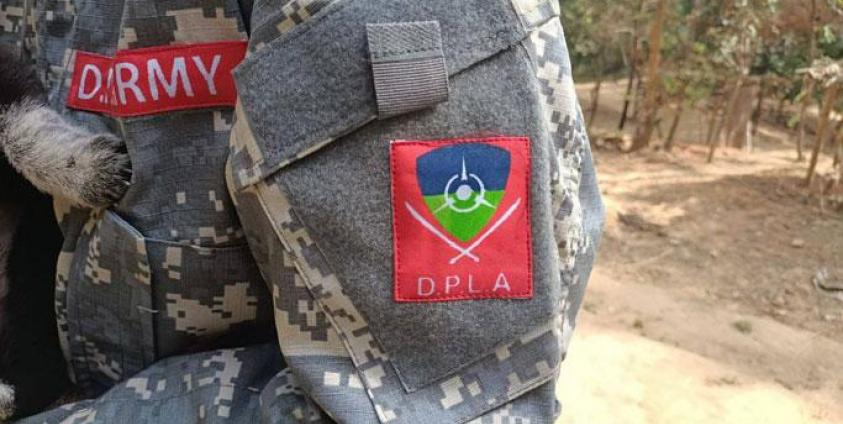Hsai Numkong — While several parts of Shan State have been wracked by violent conflict and ethnic tensions for decades, the Danu Self-Administration Zone (SAZ) has been relatively peaceful and stable.
However, the military coup of 2021 transformed this territory into an extremely unsafe one, with violence occurring on a regular basis.
In accordance with the 2008 Constitution, the Danu SAZ was designated as one of five self-administered zones in Shan State, Myanmar’s largest administrative region in terms of land area.
Unlike other SAZs, such as the United Wa State Army (UWSA), the Myanmar National Democratic Alliance Army or Kokhang Army (MNDAA), the Ta’ang National Liberation Army or Palaung Army (TNLA), and the Pa’O National Liberation Army, the Danu SAZ existed without an armed force until recently. The 2021 coup has caused their emergence.
Initially, Danu’s young people participated in nonviolent demonstrations against the SAC’s crackdown,especially in response to the military regime’s severe repression. This repression unveiled the limitations of nonviolent resistance, prompting the Danu’s youth to take up arms and join the larger resistance movement. This transformation resulted in the formation of PDFs within the Danu SAZ. There are now at least eight PDFs active in the region in opposition to the military regime.
As the armed revolution in the Danu SAZ gained momentum, the military junta deployed more troops to attack its opponents in the region. In addition, the military has attempted to form its own local militia to fight against these PDFs.
According to the ward administrator in Ywar Ngan township, the newly established military-backed militia has been supported by some Danu National Democratic Party officials and local businesses for armed training and equipment such as uniforms, food, and other supplies. This has caused escalating tensions in this region.
Clashes between them occurred occasionally. The military regime launched an aggressive battleagainst them, including air strikes and high-tech weapons. The Danu PDFs, on the other hand, attacked the military junta and its informants and destroyed military-owned telecommunications towers. As a consequence, both sides suffer. While military informants were executed and the junta sustained significant casualties, members of the Danu PDFs were murdered, injured, and detained. More importantly, civilians were forced to flee as the military engaged in brutal and immoral actions such as arresting people for no reason and destroying and burning their homes.
At the time being, it is unforeseeable whether peace and stability will be restored in the Danu SAZ. Moreover, further conflict seems to be likely to happen in this region due to the presence of various ethnic armed groups, such as the PNLO army, Karenni army and PDFs, Danu PDFs, and the newly formed military-backed militia.
Despite the fact that the PNLO army and Karenni army have been active in the Danu SAZ, there has never been conflict between them. However, with the rise of the Danu PDFs, the scenario may change since they are becoming stronger and have formed tight alliances with the Karenni armed forces. The Danu PDFs will eventually have their own armed forces.
As the continuing violence demonstrates, the conflicts between ethnic armed groups are the consequence of the fragmented relationship caused by territory disputes and ethnic rivalry. Several ethnic armed groups are fighting against the military regime, while others are battling one another over territorial and racial disputes. In northern Shan State, for example, the conflict between the TNLA and the Restoration Council of Shan State/Shan State Army (RCSS/SSA) erupted in 2015 when the RCSS/SSA sent its forces into the north, the areas claimed by the TNLA. This ethnic strife is still going on today. Due to territorial issues, the Shan armies - the Shan State Progress Party/Shan State Army (SSPP/SSA) and the RCSS/SSA - are battling each other in the south. There has also been some conflict between the RCSS/SSA and the PNLO.
The conflict in the east has been particularly heated between the UWSA and the National Democratic Alliance Army (NDAA), often known as the Mongla group.
Therefore, since other ethnic armed groups are also active in the Danu SAZ, but the aim of the soon-to-be Danu armed forces is greater autonomy and a federal state, territorial disputes and conflicts will inevitably happen, just as they have for other ethnic groups.







